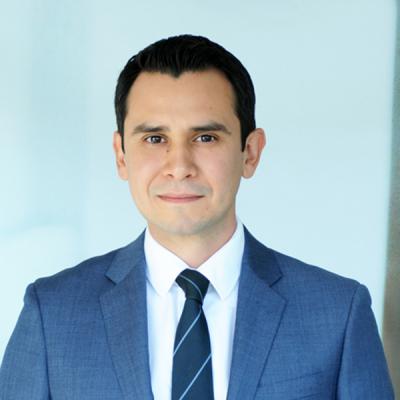TCPA Class Action Update: Circuit Split Further Entrenches TCPA Landscape
By Matt Novian, E. Crystal Lopez, and Esteban Morales
In May 2018, the D.C. Circuit set aside the FCC’s “unreasonably expansive interpretation” of what equipment constitutes an ATDS. See ACA International v. Federal Communications Commission, 885 F.3d 687 (D.C. Cir. 2018). The FCC’s prior orders broadly interpreted the TCPA’s statutory language, subjecting “ordinary calls from any conventional smartphone to the Act’s coverage,” and effectively opening the floodgates to litigation. Id. at 5.
Though the FCC has sought comment on, and has yet to clarify what constitutes an ATDS post-ACA Int’l, the Ninth Circuit has now held that “the statutory definition of ATDS includes a device that stores telephone numbers to be called, whether or not those numbers have been generated by a random or sequential number generator.” Marks v. Crunch San Diego, LLC, No. 14-56834, 2018 U.S. App. LEXIS 26883, *3 (9th Cir. Sept. 20, 2018).
After acknowledging that the D.C. Circuit set aside prior FCC pronouncements, the Ninth Circuit set out to interpret the Act’s ATDS definition. The Ninth Circuit began with the statutory language (which it determined to be ambiguous) and concluded that an ATDS is “not limited to devices with the capacity to call numbers produced by a random or sequential generator” but also “equipment which has the capacity – (1) to store numbers to be called or (2) to produce numbers to be called, using a random or sequential number generator – and to dial such numbers.” Id at *7. Under the Ninth Circuit view, dialers do not need to generate telephone numbers to qualify as an ATDS; notably, however, the Ninth Circuit did not address the amount of human intervention necessary to escape qualification as an ATDS.
In light of Marks, which was issued only four months after ACA Int’l, there is now a clear circuit split with all the makings for a Supreme Court appeal. Earlier this year, the Third Circuit reached the opposite conclusion from the Marks Court, holding that equipment must have the capacity to randomly or sequentially generate numbers to be dialed in order to qualify as an ATDS. See Dominguez v. Yahoo, Inc., 894 F.3d 116, 120 (3rd. Cir. 2018). In a brief footnote, the Marks Court explicitly declined to follow the Third Circuit’s “unreasoned assumption” and concluded that the Dominguez Court “avoided the interpretive questions raised by the statutory definition of ATDS” and is therefore “unpersuasive.” Marks, 2018 U.S. App. LEXIS 26883 at fn. 8.
Adding to the debate are numerous post-ACA Int’l district court opinions holding that number generation is a requisite and that the FCC’s expansive ATDS pronouncements have been vacated:
- Wilfredo Gonzalez v. Ocwen Loan Servicing, No. 1:17-CV-01600-LMM, 2018 U.S. Dist. LEXIS 153480 (M.D. Fla. Sept. 5, 2018) (Predictive dialers are not subject to the TCPA unless they randomly or sequentially generate numbers to be dialed.);
- Keyes v. Ocwen Loan Servicing, No. 17-cv-11492, 2018 U.S. Dist. LEXIS 138445 (E.D. Mich. Aug. 16, 2018) (D.C. Circuit “set aside the FCC’s declarations regarding the capacity and functions of an ATDS.”);
- Gary v. TrueBlue, Inc., No. 17-cv-10544, 2018 U.S. Dist. LEXIS 128782 (E.D. Mich. Aug. 1, 2018) (Dialing from a list of numbers does not satisfy ATDS requirements.);
- Pinkus v. Sirius XM Radio, No. 16 C 10858, 2018 U.S. Dist. LEXIS 125043 (N.D. Ill. July 26, 2018) (“ACA Int’l necessarily invalidated the FCC Declaratory Rulings insofar as they provide, that a predictive dialer qualifies as an ATDS even if it does not have the capacity to generate phone numbers randomly or sequentially and then to dial them.”); and
- Sessions v. Barclays Bank Delaware, No. 1:17-CV-01600-LMM, 2018 U.S. Dist. LEXIS 108453 (N.D. GA June 25, 2018) (ACA Int’l overruled FCC’s predictive dialer rulings, but the issue of statutory functionality is reserved at the pleadings stage.)
In light of the above, defendants need to strategically consider their approach to litigation depending on their venue (including whether a change of venue is potentially beneficial and possible). In May of this year, the FCC issued a Public Notice seeking comment on, among other things, what constitutes an ATDS. Until the FCC issues post-ACA Int’l guidance, defendants with cases in the Ninth Circuit may consider seeking a stay. Elsewhere, particularly in the Third Circuit, defendants should consider an early dispositive motion asking their respective court to force plaintiff’s hand on the issue of number generation.

TCPA & Consumer Calling Digest – September 2018
September 20, 2018| Article

TCPA Regulatory Update: FCC Receives Feedback on its Robocalling Report and Reassigned Numbers Database Proposal
September 20, 2018| Article
Authors


